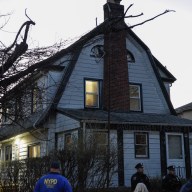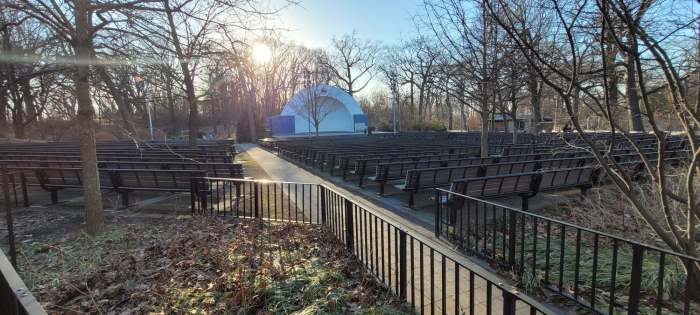By Cynthia Koons
A group of Korean civic leaders met for lunch last week in Flushing to lend their support to human rights, democracy and development initiatives in North Korea.
Their distance from the situation did little to diminish the strength of their convictions.
The Queens leaders — from groups such as the Korean American Parents Association, the Korean Immigrant Services of New York and the Korean American Defenders of Freedom — said North Korea leader Kim Jong-Il lets his people live in squalor under his dictatorship.
The Flushing group assembled after learning about the North Korea Freedom bill, sponsored in the U.S. Senate by Sen. Sam Brownback (D-Kan.).
The bill was introduced in the House of Representatives by U.S. Rep. Chris Smith (R-N.J.) and three other congressmen on Nov. 21. Its intention is “to promote human rights, democracy and development in North Korea, to promote overall security on the Korean Peninsula and establish a more peaceful world environment.”
Under the bill are subsections describing how the political action will serve to promote humanitarian efforts in North Korea by distributing food there and help build democracy by broadcasting into the country.
North Korea and South Korea were founded as separate entities in 1948. North Korea has been a communist state, led by Kim II Sung and now his son, Kim Jong II. Already tense U.S. relations with North Korea have worsened recently amid suspicions the state possesses nuclear weapons.
“America is the freest country on earth and we appreciate the opportunity to live in this country,” said Yangee Hahn from the Korean American Association of Flushing. “We want to take this opportunity to help the oppressed.”
After the Dec. 22 luncheon, coordinated by Ellen Kang of the Korean American Defenders of Freedom, civic leaders planned to circulate a petition throughout the Korean community and general population in Queens to demonstrate their support for the bill.
There is a concentration of South Koreans in northeast Queens.
“I grew up in a church with North Koreans who came to South Korea and I knew their suffering,” Christine Colligan of the Korean American Parents’ Association said. “This is a tragic situation, I really 100 percent agree to support this legislation.”
Sok Kang, of the Korean Immigrant Services of New York, said he visited North Korea last year and saw people singing songs about their great leader.
“It was unbelievable, worse than Cuba, worse than Russia, worse than Saddam,” Kang said.
“People (live in) fear — husbands and wives, they don’t trust each other,” Kang said. “The military has Rolex watches and Mercedes. The rest of the country, the people are starving to death.”
Kang said South Korea is not interested in reuniting with the north because the economics are so different in the two countries.
According to the bill, the 2002 gross domestic product of North Korea was estimated at $762 per capita, while in South Korea it was estimated at $10,013 per capita.
There are also disparities in the health of residents living in both nations. In South Korea, according to UNICEF estimates, there are five deaths per 1,000 live births, while in North Korea there are 42 deaths per 1,000 live births.
“Ordinary people are skinny and dry skinned,” Kang said, of his observations from his visit to North Korea.
Kang said it is impossible for North Koreans to voice their grievances, which is why groups like Kang’s are appealing to the U.S. federal government for assistance.
“Do you hear northern brothers’ cries for help? Of course not, when the government clamps down on people’s mouths,” she said. “When you are a North Korean, you are to say, move, read and sing as the government dictates.”
Reach reporter Cynthia Koons by e-mail at Timesledger@aol.com or call 718-229-0300, Ext. 141.
































